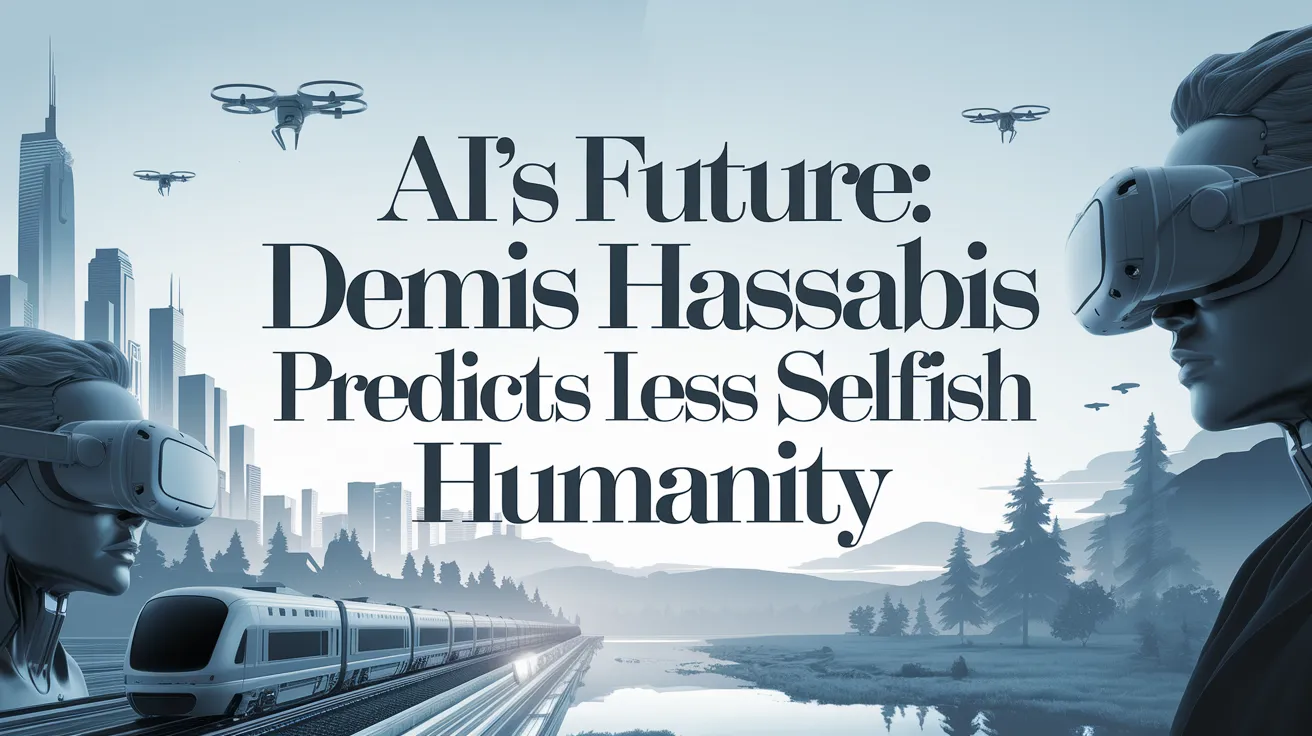AI’s Future: Demis Hassabis Predicts Less Selfish Humanity

Demis Hassabis, the CEO of Google DeepMind, has emerged as a pivotal figure in the realm of artificial intelligence, steering the company amid expectations that such technology will soon transform the human experience. If one accepts that AI represents a monumental disruption for humanity, his perspective is particularly essential.
Hassabis leads the push towards artificial general intelligence (AGI), a system capable of performing tasks that encompass the full range of human cognitive abilities. Unlike his competitors, he stands out as a Nobel Prize laureate and a knight, accomplishments stemming from his background as a teenage chess prodigy and a skilled game designer with a PhD in cognitive neuroscience.
As a pioneer, he has positioned DeepMind at the forefront of AI innovation, particularly with breakthroughs like AlphaFold, which revolutionized protein structure prediction and earned him a Nobel Prize in chemistry. Recently, he expressed confidence that AGI is attainable within the next five to ten years, suggesting a 50 percent probability of success within this timeframe.
When asked about the potential implications of AGI, Hassabis articulated a vision where AI could lead humanity towards a future of ‘radical abundance.’ He sees AGI as a solution to critical global challenges, including disease eradication and sustainable energy sources. “If everything goes well,” he posits, “we should be in an era of maximum human flourishing.”
Nevertheless, he also acknowledges significant risks associated with the race to develop AGI. The emergence of rogue actors misusing advanced AI for harmful purposes and the technical difficulties of ensuring that powerful AI systems operate safely and correctly pose challenges that keep him awake at night.
Hassabis’s thoughts on the geopolitical dimensions of AI innovation highlight the intense competition between Western companies and nations, particularly China. He suggests that while there are concerns surrounding a potential ‘hard takeoff’ scenario—where rapid advancements could lead to uncontrollable AGI—he leans towards an incremental progression where changes occur more gradually.
The interview reveals that Hassabis firmly believes in the necessity of smart regulation to accompany AI developments, advocating for a flexible approach that can adapt to new findings in the field. He expresses concern over the current trajectory of regulations, where an urgency to advance AI technology is overshadowing the call for safety measures.
As the conversation shifts to the workforce implications of AI, he expresses optimism that instead of mass unemployment, the market will adapt and create new job opportunities that leverage AI’s capabilities. His belief suggests a robust interaction between humans and AI, whereby individuals will work alongside intelligent assistants to enhance productivity rather than be replaced.
Hassabis also touches upon the societal mindset shifts that AGI may inspire. He hopes that enhanced problem-solving capabilities will lead to a stronger, less selfish human approach towards resource management and conflict resolution. He anchored this optimism with relatable examples, such as using renewable energy sources sourced through AI innovations to tackle pressing issues like water scarcity.
Reflecting on the complexities of predicting AGI’s impact, he acknowledges widespread skepticism regarding whether humans will effectively harness such technology for good. He suggests a need for collaboration and sacrifices, highlighting the challenge of instilling a societal shift towards a non-zero-sum mindset that allows everyone to benefit from advancements rather than merely compete.
In conclusion, Hassabis’s passion for unlocking intelligence, both artificial and human, underscores his commitment. While the journey towards AGI may entail disputes and upheavals reminiscent of the Industrial Revolution, he remains convinced that the transformative potential of AI outweighs its risks. The conversion of aspiration into reality, he argues, will not just be a matter of technical accomplishment but also of fostering an ethos of cooperation that celebrates the shared benefits of progress.